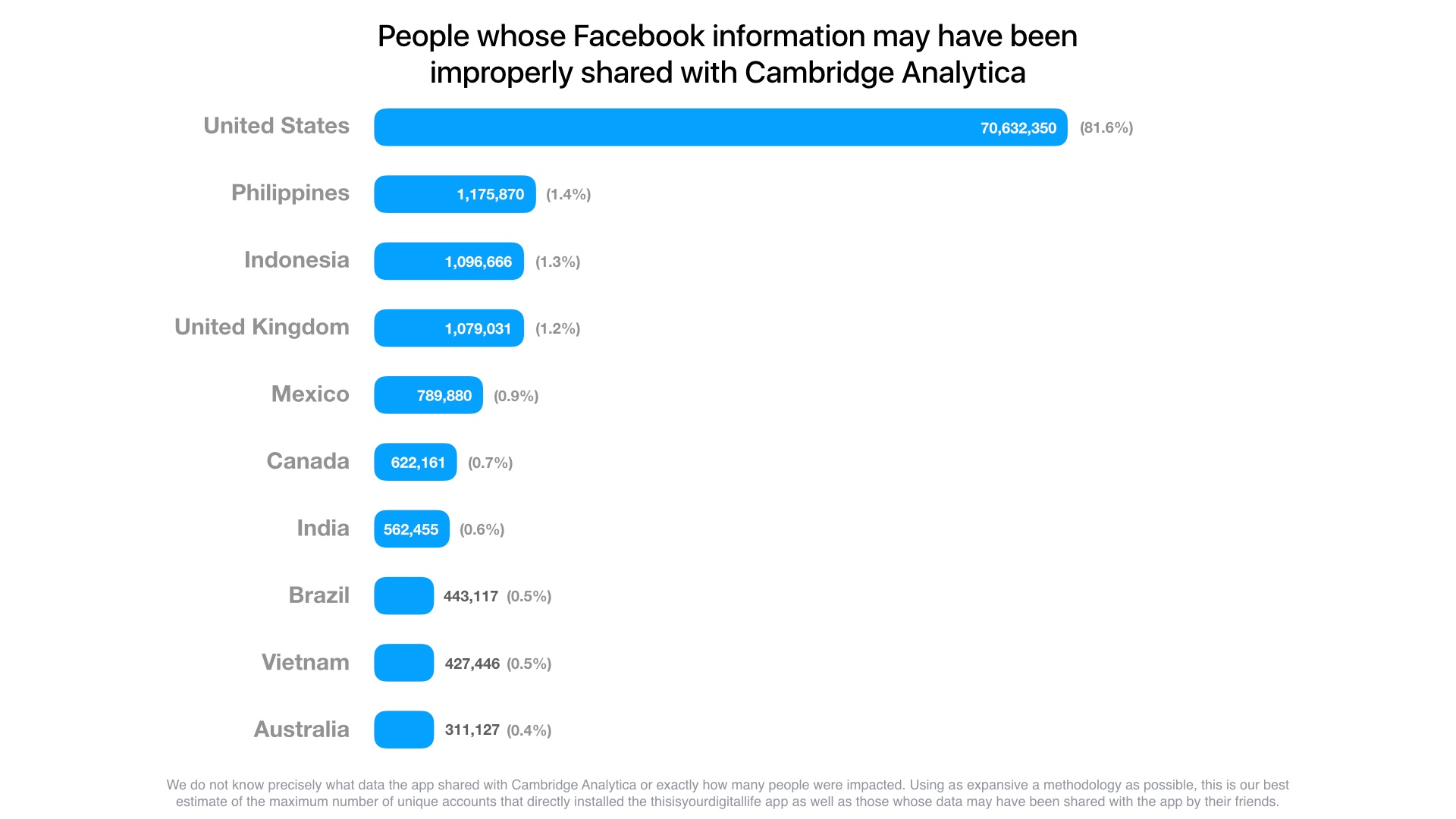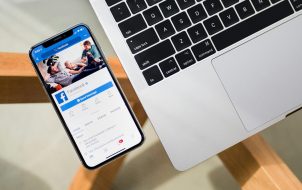The fallout from the Cambridge Analytica exposé shows no sign of abating, with Facebook’s own analysis suggesting that the problem was worse than original reports claimed. While the early reports in the New York Times and The Guardian quoted a figure of 50 million affected accounts, the social network has now upped the number to 87 million.
The news was buried towards the end of a blog post by Mike Schroepfer, Facebook’s chief technology officer, covering all the ways the company is intended to restrict data access in the wake of the scandal. After covering changes from phone number search (scrapped) and the logging of call and text history (heavily reduced), the key line appeared 11 paragraphs in: “In total, we believe the Facebook information of up to 87 million people — mostly in the US — may have been improperly shared with Cambridge Analytica.”
That’s not an exaggeration. As Facebook’s chart below shows, while 70,632,350 American accounts were said to have been shared with Cambridge Analytica (around 22% of the population), just 1,096,666 UK accounts got the same exposure (roughly 1.5%).
In a press conference with journalists shortly after, Zuckerberg was grilled on these figures. Explaining that this figure was likely a worst case scenario based on the maximum number of connections that could have been scraped at the time, Zuckerberg added that “It very well could be less, but we wanted to put out the maximum we felt that it could be as that analysis says.”
Unusual scrutiny
It’s not often Zuckerberg opens himself up to the press conference treatment, and the whole call is quite interesting as a result. You can read the full Q&A transcript here, but there are a couple of other points worth highlighting – like how Zuckerberg now says he regrets dismissing the idea that Facebook could affect elections back in 2016. “I’ve said this already —but I think at this point that I clearly made a mistake by just dismissing fake news as “crazy”— as having an impact,” the Facebook founder said in response to a question from the BBC. “People will analyse the actual impact of this for a long time to come, but what I think was clear at this point is that it was too flippant. I should have never referred to it as crazy.”
He also contradicted reports from yesterday that Facebook wasn’t planning to roll out its implementation of GDPR worldwide: “We intend to make all the same controls and settings available everywhere, not just in Europe. Is it going to be exactly the same format? Probably not. We need to figure out what makes sense in different markets with the different laws and different places. But—let me repeat this—we’ll make all controls and settings the same everywhere, not just in Europe.”
Finally, Zuckerberg was pressed on whether he was still the right man to be running Facebook. “Yes,” he replied. “Life is about learning from the mistakes and figuring out what you need to do to move forward,” he added, sounding a bit like one of those twee inspirational memes so popular on his service.
Maintaining that position at Facebook means he has to answer to Congress, and it has been revealed that he’ll be facing elected lawmakers in the US not once, but twice. Alongside an appearance in front of the House Energy and Commerce Committee on 11 April, Zuckerberg will appear at a joint hearing at the Senate, featuring both the Judiciary and Commerce, Science and Transportation committees a day earlier.
Meanwhile, in the UK, parliament has no legal power to compel Zuckerberg to appear and was duly snubbed when the Facebook founder was summoned.
Disclaimer: Some pages on this site may include an affiliate link. This does not effect our editorial in any way.


